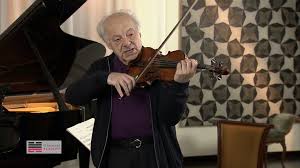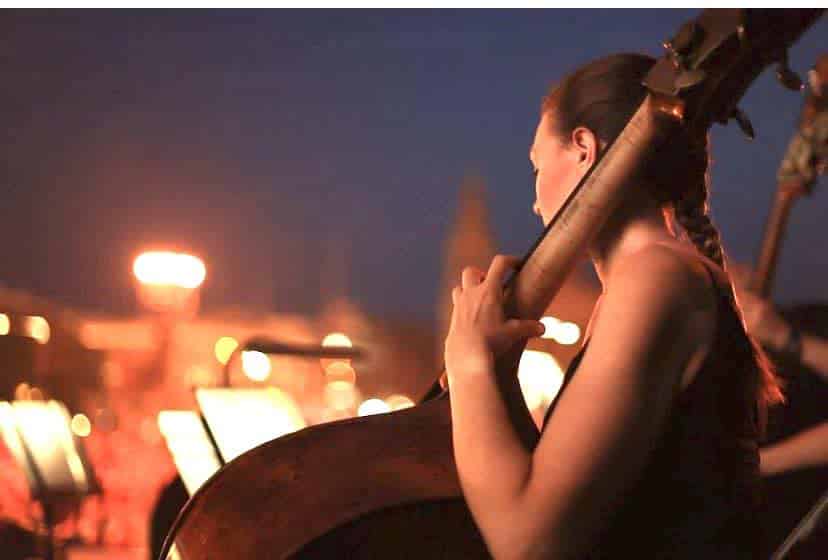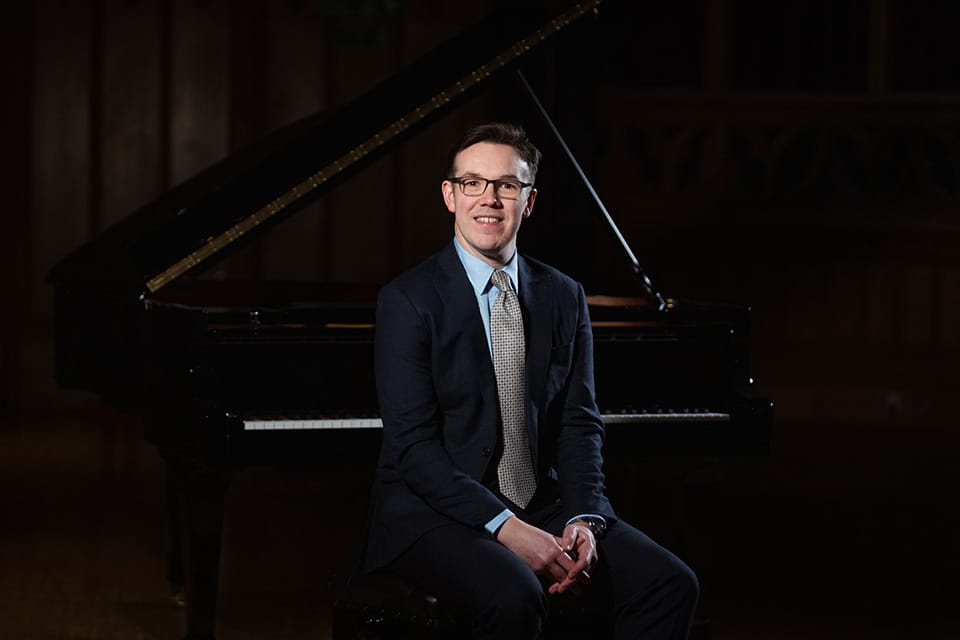Salzburg honours 28 artists exiled by the Nazis. What took them so long?
mainPress release:
(SF, 17 August 2020) 28 commemorative stones for victims of the Nazi dictatorship were laid today on Max-Reinhardt-Platz, outside the Haus für Mozart. The Salzburg Festival’s centenary offers an occasion to commemorate those exiled and murdered artists who shaped the Festival decisively in the almost 20 years between its founding at the annexation of Austria in 1938. Therefore, the Salzburg Festival gratefully adopted the suggestion of the Stolpersteine Committee and the Jewish Congregation to place 28 “Stolpersteine” (literally, “stumbling stones”) in a prominent position on Max-Reinhardt-Platz, in front of the Haus für Mozart. The Association of Friends of the Salzburg Festival is also covering the costs of the 28 stones.

Here are the names.





Indeed, what took them so long?
They had to wait until most of those who took the vacant positions died – lest some darling of the postwar public might be offended.
Great to see Erich Kleiber on the list. He had the rare distinction of standing up to the Nazis, the Italian Fascists and the (East German) Communists…
And he went to S America to share the best of Austro-German music. In fact, there’s a recording of him conducting the Argentinian premiere of the St John Passion! (It’s terrible – but his Argentinian Wagner is worth hearing.)
Erich Kleiber certainly was brave to go against the zeitgeist. That takes particular self-belief and guts – in such terribly short supply today. His wife, Ruth Goodrich, was believed to be Jewish – but her name came from her mother’s second husband, who happened to be Jewish. He was not Ruth’s father.
“Great to see Erich Kleiber on the list. He had the rare distinction of standing up to the Nazis, the Italian Fascists and the (East German) Communists…”
Could you provide more details, please. I also like Mr. E. Kleiber.
Flambeau – the English language Wikipedia biography is a pretty good summary. For more details, the biography by John Russell (written 1957) is good
What about Emmanuel Feuermann whose early training was in Vienna and had to escape from there with the aid of Huberman after the Anschluss in 1938?
What took them so long? Really?
As Friedrich Torberg, one of the sharpest wits of Austrian literature in the 20th century, put it:
Germany says ‘Vergangenheitsbewältigung’. Austria says “Ach wos!”
That was 20 years after the war. Torberg himself had escaped the Nazis by the skin of his teeth.
The consequences of the “Ach wos!” attitude pervade Austrian society to this day, and have come back to haunt its politics with a vengeance. Those victims of Nazi hounding whose memory is now being honoured with trademark Stumbling Blocks have one redeeming quality, which helps placate the brown fringe that is bleeding ever farther into the heart of the Austrian gamut: they are already dead.
How strange, I don’t see Karl Böhm on the list… NO, JUST KIDDIN’ !!
I saw or heard 12 of them perform live on recordings. Already by 1947, Bruno Walter and Rosette Anday (Weingartner’s contralto in the 1936 Ninth) were back in Vienna for Mahler’s “Resurrection”, rcorded, in which Anday is stupendous, the equal of Christa Ludwig, whom I saw sing it.
When the Vienna State Opera e-opened … it’s always re-opening … and Lotte Lehmann entered, the audience rose to welcome her.
Srnold Rose, ne Rosenblum, was concertmaster of the Vienna Philharmonic for 50 years. He knew Brahms and was mahler’s brother-in-law.
Alexander Kipnis is the best Boris I ever heard. Toscanini made a splash after exile. I saw him also.
Well, when Wagner is persistently honored with performances, and no mention made of his virulent anti-Semitism, and no or few performances of the music of the Jewish composers murdered or exiled by the Nazi regime, what pressure is there for Austrians to do right? They can barely, if at all, do right by the Von Trapp family.
Whisper ‘Jews’ in a musical context and immediately the echos of Wagnerallergy sound from the corners of ignorance.
http://johnborstlap.com/was-wagner-a-bad-person/
PS
Half of the Trapp children were Jewish.
What took them so long?
Most of them were either outright Nazis or Nazi supporters.
Notice where those “stumbling stones” are going to be placed? In front of Mozart’s house. They still hate him!
Austria is and remains an extremely anti-semitic country- far more so than Germany – so its hardly a surprise that it took so long.
A serious exaggeration. Younger generations are, in general, pufficly Europeanized and prosemiticized. The central international institute that explores and annotates and promotes the music of Austrian composers from Jewish descent, the Exil Arte Institute, is based in Vienna:
https://exilarte.org/
The international centre of Schoenberg studies, the arch father of ‘Jewish’ modernism, is also based in th city that he had to escape – the Arnold Schoenberg Center:
https://www.schoenberg.at/index.php/en/
A few museums and centers does not change the thinking of the masses and that thinking has been outright antisemitism.
This comment and the one by Tom Phillips are inappropriate, disrespectful and horrid.
Salzburg Austria honours these people and all you can think of is mentioning “outright antisemitism”.
That’s plain wrong, ugly and twisted.
Norman’s “what took them so long” is still positive, but you turn it into utter ugliness.
Austrian’s are welcoming, down-to-earth, with a good sense of humour, good critical eye, good self-criticism, and for the most part strongly guarding of their traditions; which are wonderful.
But your focus it something else. You don’t care if they honour those 28 or any others (for that matter). For you it’s just a platform, for spreading twisted ugliness. Stop it….
Never forget!!! But the world DOES forget and history is repeating itself now!!!
Why aren’t there more comments like this? Why is everybody so rational nowadays?
Sally
Highest time that ERICH KLEIBER gets recognition in his native country! The Viennese GMD of the Berlin Staatsoper (where he world premiered “Wozzeck” by Alban Berg) left “ohne Not” one of the international top positions in the music world, as he wanted to have nothing to do with the Nazis. All over South America he is worshipped to the day. After the war he was invited back to his former headquarters in Berlin (East by then), and becoming aware of Communist interference and dictatorship, he left again. Nobody would have deserved so much to be the Artistic Director of the Staatsoper of his native city Vienna right after the war!!! What happened there was shameful! EK died lonely and prematurely in a Zürich hotel, but he set a unique example of sublimest, truth-seeking music making and a heroic backbone character! And he left Carlos to the music world whom he raised!
True.
But in the classical music world, backbone and principles are rare. Which is strange, since the art form itself is about almost nothing else.
It seems to me that the art form is an ideal cover-up of the worst of human misbehavior, like the abberations in the RC priesthood.
Bravo, Maestro!
I am connected to the new “Haus der Weimarer Republik” in Weimar. We have 38 lockers at the museum, and we decided to name the lockers. 19 women and 19 men, with photos and biographies on the inside. I insisted that one locker was named “Erich Kleiber”.
Where is Paul Hindemith?
He’s still practicing.
Some very big names there!
Bravo! Thank you for your attention.